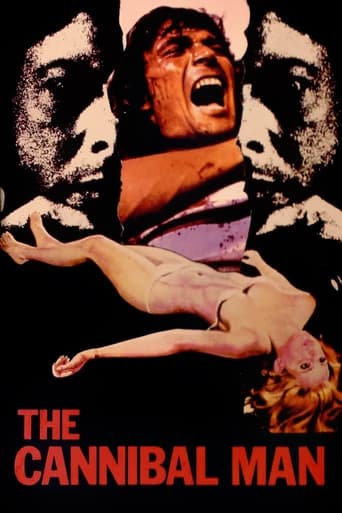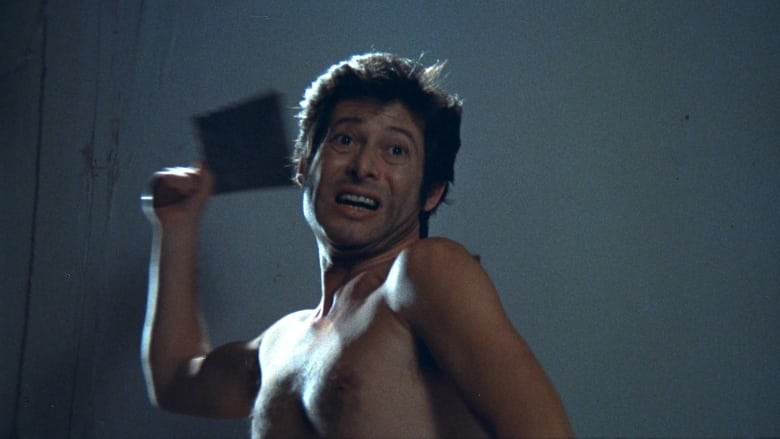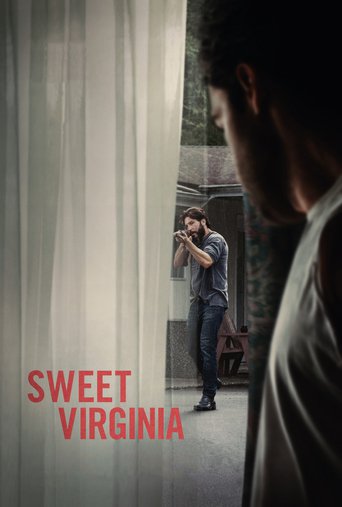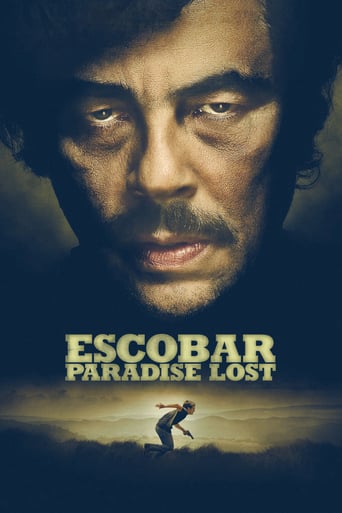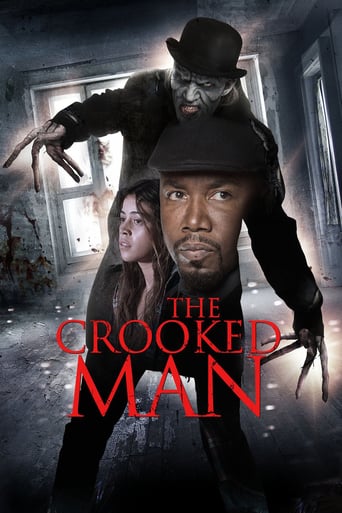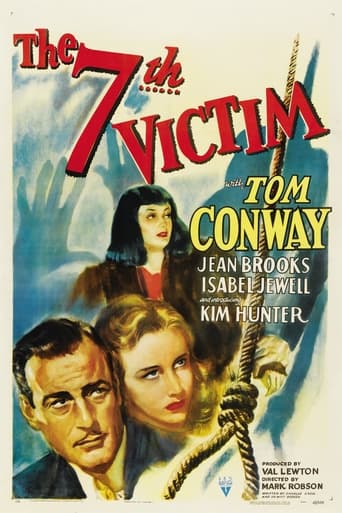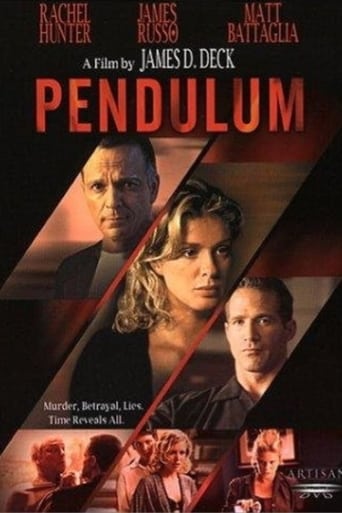The Cannibal Man (1973)
A young man, Marco, working as a butcher, accidentally kills a taxi driver. His girlfriend Paula wants to go to the police so he has to kill her too. He then has to kill his brother, his brother’s fiancée and his father, who have become suspicious. He gets rid of the bodies by taking them to a slaughter house.
Watch Trailer
Cast
Similar titles
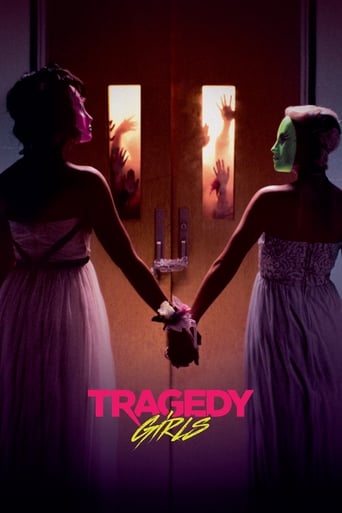
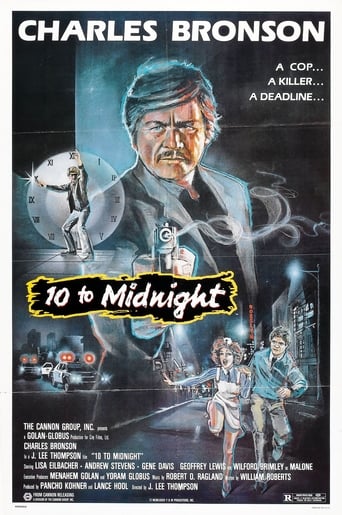
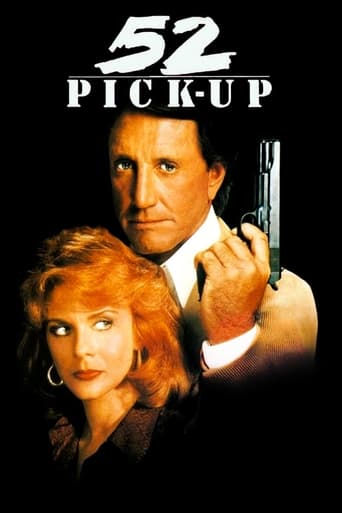

Reviews
ridiculous rating
Excellent, a Must See
It’s fine. It's literally the definition of a fine movie. You’ve seen it before, you know every beat and outcome before the characters even do. Only question is how much escapism you’re looking for.
The movie really just wants to entertain people.
While writer/director Eloy de la Iglesia is well known in Spain for his quinqui (i.e. hoodlum) films, gritty depictions of young criminals and drug addicts, abroad his reputation rests largely on the shoulders of his early seventies thrillers. The most notorious of these is Cannibal Man, which gained cinematic immortality as one of Britain's Video Nasties. Like many titles on that list, this film is far more complex than its exploitative title and marketing would suggest; the original Spanish title is La semana del asesino, which means The Week of the Murderer.The murderer in this case, rather than "cannibal man" as the export title misleadingly suggests. is Marcos (Vicente Parra), a lower-class employee of the local slaughterhouse. His small shack looks like a relic when compare to the adjacent high-rise apartment, which is populated largely by affluent students. Marcos is pressured by his girlfriend Paula (Emma Cohen, one of Spain's greatest actresses) to marry, but he insists on waiting until he's promoted. One of their outings goes horribly wrong when a cab-driver, disturbed by their backseat necking, kicks them out of his taxi. Marcos refuses to pay the fare, and a scuffle breaks out. As the cab driver begins beating Paula, he utters one of the film's best lines, which is simultaneously hilarious and tinged with social commentary: "I'm gonna give you the beating your father never had time to give you!" Marcos hits him in the head with a rock, accidentally ending his life. Thus begins our protagonist's soul-destroying week, which finds him committing murder after murder in order to cover up his original crime.Though the film has its share of blood and gore, Eloy de la Iglesia is far more interested in his character's plight, as well as his social status. Marcos often reminds us that he's a poor man. When his brother and girlfriend pressure him to confess his crimes to the police, he protests that as a working class schmo he'd never get a fair trial. "The police will never believe me...and you need money to afford a good lawyer." The chain of murders only escalates as more people snoop in Marcos' shack, and react either with hostility or fear. His only friend throughout the whole ordeal is the enigmatic Nestor (Eusebio Poncela, most famous for playing the inspector in Almodovar's Matador). Nestor is a resident of the nearby high-rise, and one of the affluent students mentioned earlier. He spends his time spying on people with his binoculars, and this is how he acquaints himself with Marcos.In discussing the relationship between Marcos and Nestor, it is necessary to reference the director's sexual orientation. Eloy de la Iglesia was a gay Marxist, during a time in which homosexuality was still illegal in Spain. Though it's never blatantly mentioned, Nestor is clearly gay, and he shares the director's sympathy with the working class. Though he initially tries to impress Marcos with masculine posturing, Nestor's interactions with Marcos soon become charged with homo-eroticism. This reaches its peak in a memorable swimming pool scene, in which Marcos and Nestor swim and shower together; it's a dazzling and tender display of filmmaking, and it loses not of its potency with repeat viewings. This scene, as well as much of the political content, was unfortunately but not surprisingly censored from the Spanish version of the film, meaning that this English-dubbed export version is the closest thing to a true director's cut. Some recently discovered deleted scenes, featured on the German blu-ray, fascinatingly hint at a more explicit version. While most of the material is inessential, such as a scene in which Marcos is promoted, one of the final scenes shows Nester and Marcos passionately making out. No context is provided, and this scenes (as well as the others) features no audio. Thus this plays as a haunting footnote to the film's fascinating and complex central relationship: did de la Iglesia intend for the two men to become lovers? Is this perhaps just a fantasy of Nestor's? Or, more intriguingly, a fantasy of the classically masculine Marcos? Unless the screenplay surfaces, or someone interviews Poncela about it, we may never know.Since I am both a huge fan of this film and incredibly reckless with my money, I forked out a sizable amount of money to import the recent German blu-ray. I am pleased to say that the disc is a significant upgrade to the American DVD, and lends a greater appreciation to the director's artistry. This was my third viewing of the film, and I found it just as rewarding as the first. The surprise reveal in the deleted scenes only sweetened the deal for me, assuring me that my money was well spent. It is a complex, politically charged, yet deeply heartfelt film. I shared it with a friend on my last viewing, and I hope he will not mind if I share his thoughts on the experience: "It's really just about one man having a bad week, and the trials of having to get through it without losing his whole soul." It is that, but also much more; a film that can be appreciated from multiple perspectives. I fear that this review does not do it justice. Suffice it to say that this is truly one of the crowning achievements of Spanish horror cinema. This will also be of interest to anyone interested in the history of queer cinema, being one of the ballsiest acts of transgression ever committed under a fascist dictatorship. Though homosexuality was outlawed in Spain, de la Iglesia wore his sexuality like a badge of honor, and he continued to make films on his own terms.
I finally watched this overlooked Spanish film and I have to say that I enjoyed it a lot, much more than I expected. I rarely heard anything from it and the reason I saw it was because I'm collecting VHS tapes released by Anchor Bay during the late 1990s and CANNIBAL MAN was part of those horror films. It's a horror film but the horror aspects are not what makes it work. It's more the tone, the actors and the whole look which are all excellent and unique. In fact, the horror elements are at times pretty weak and unconvincing and anyone watching it as a horror film will probably be disappointed. The killings or the repetitive reasons for the man in question to kill are not always convincing but that's because the film is totally symbolic of the time it was made. When you view CANNIBAL MAN as that, the film becomes unique and almost brilliant. I won't describe anything about the film itself. I'll just leave it up to you to see and decide.The closest thing I can compare it to is APARTMENT ZERO, which I now believe was probably , eh, "inspired" by CANNIBAL MAN. The ending is a bit murky but the better for it. It gives me something to think about. Well worth watching for fans of quirky cinema.
A butcher was just having a date with his girlfriend until he cause some problems with a Taxi driver then he kills him and his girlfriend, he is going over the brink of insanity. He now goes on a killing spree creating some serious crimes and stuffing some parts of the bodies into the meat factory where it can be processed into what we eat.Despite the title "Cannibal Man", it's not really about the man being a cannibal but it's really a psychological horror drama and a character study about a man who's been driven to the edge of his insanity. There is some shocking graphic murders which made this movie banned in other countries, the film is a sick and twisted look at a psychopath's mind with good acting and is very dark.Also recommended: "Maniac" ( 1980), "The Texas Chainsaw Massacre Series & 2003 remake", "Caligula", "Henry: Portrait of a Serial Killer", "High Tension", "American Psycho", "Driller Killer", "The New York Ripper", "Wolf Creek", "Eaten Alive! ( 1980)", "Cannibal Ferox", and "Jungle Holocaust" ( a.k.a. Last Cannibal World).
I still haven't quite figured out what really to think of this film By no means it's a mind-blowing thriller or even a memorable eurohorror entry. The film moves by slow and careful and the plot-development is too tame to keep your solid attention. Heck, even the sex-sequence is shot in a dreadfully tedious way. Yet, do not underestimate this production too much and whatever you do don't be misled by the title that has a traitorous splatter ring to it! Even though `Cannibal Man' does contain a couple of nasty butchering sequences, it merely is drama and an alarming social portrait. Marcos is a simple man, living on the edge of poverty. He works in a slaughterhouse and has a younger girlfriend. After a night out, Marcus gets into a fight with an unfriendly cabdriver. He accidentally kills him leaves the place of the crime. The girl wants Marcus to confess what he did to the police but Marcus doesn't want this and sees no other option than to kill her too, before she talks. Later, he kills his brother for not being supportive about it, then his sister-in-law for becoming suspicious etc etc etc You get the picture: Marcus descents further and further into madness! I guess the controversial value is the most remarkable thing about `Cannibal Man'. Director Eloy de la Iglesia (not-so) subtly criticizes society's lack of communication, solidarity and the entire authority & justice system! Bearing in mind the film was made during the reign of the Spanish dictator Franco, this was a risky operation to say the least.
